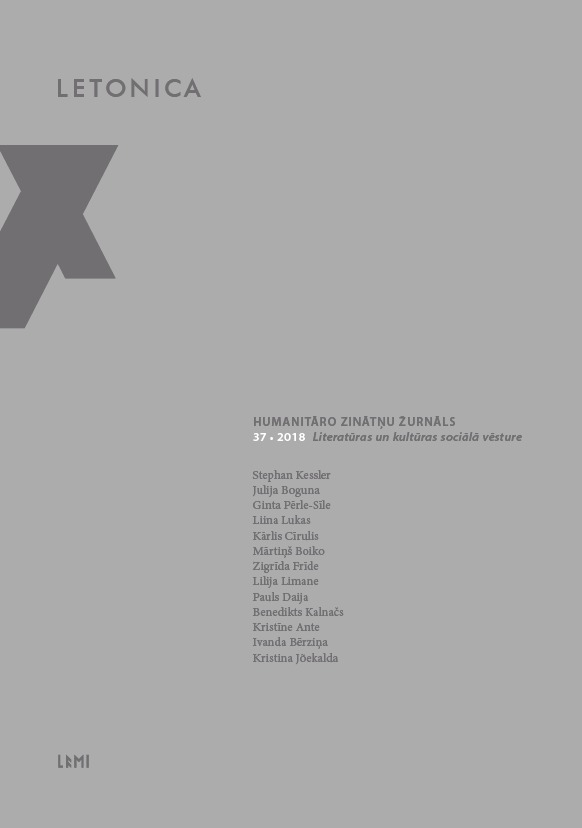19. gadsimta literāro procesu kontinuitāte populārās kultūras perspektīvā
The Continuity of 19th Century Literary Processes from the Perspective of Popular Culture
Author(s): Pauls Daija, Benedikts KalnačsSubject(s): Language and Literature Studies, Literary Texts, Cultural history, Fiction, Baltic Languages, Translation Studies, Sociology of Literature
Published by: Latvijas Universitātes Literatūras, folkloras un mākslas institūts
Keywords: the 19th century; Latvian literature; popular culture; the story of Genoveva; Ansis Leitāns; Rūdolfs Blaumanis
Summary/Abstract: The aim of this article is to provide a reading of 19th century Latvian literature from the perspective of popular culture. This branch of literature has traditionally remained understudied due to the low creative quality and the prevalence of translations. In earlier investigations the attention has mostly been drawn to historical importance, as opposed to aesthetic features. Similarly, literature usually defined as “elitist” and canonized as classical, has rarely been examined in the context of popular literature. On most occasions it has been dealt with in isolation from other literary trends. Although “elitist literature” cannot be regarded an accurate definition, its application is productive due to the fact that the connection between Latvian literature and national awakening with its concept of Lat vians as a nation of culture is emphasized. This article intends to provide a framework that might be applied to the analysis of the aesthetics of “low” literature, and highlights how this approach can be useful for the understanding of interconnections between popular culture and literature included in the canon of literary history. The introduction of the article examines the significance of popular culture in mid-19th century; the rest is dedicated to the appropriation and re-creation of literary characters borrowed from the mid-19th century popular literature and transferred to 19th and 20th century texts. The authors also discuss the disintegration of borders between the elitist and popular culture as a significant impulse for artistic innovations. These tendencies have been contextualized following two different versions of the story of Genoveva, the 1846 novel Countess Genoveva (Grāfa lielmāte Genoveva) by Ansis Leitāns and the unfinished drama Genoveva by Rūdolfs Blaumanis written in 1908.
Journal: Letonica
- Issue Year: 2018
- Issue No: 37
- Page Range: 134-143
- Page Count: 10
- Language: Latvian

